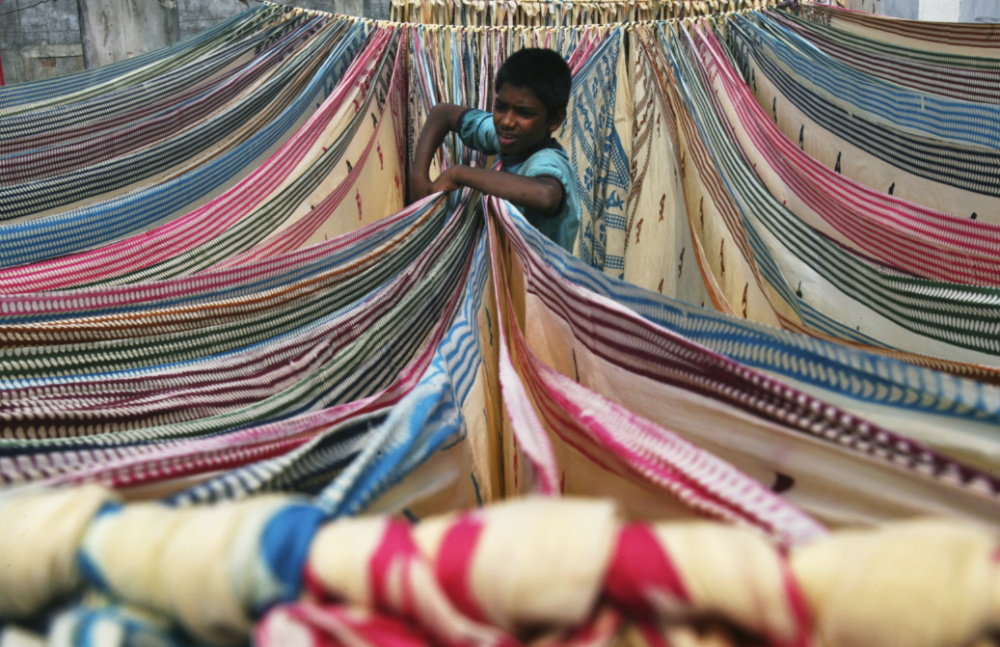Chennai, India
Thomson Reuters Foundation
Efforts to tackle child labour in garment factories in southern India are being ramped up after the rescue of 35 children from a spinning mill, officials said on Thursday, amid concerns of an increase in trafficking as coronavirus restrictions are eased.
In one of the first cases of child labour reported in India since the pandemic, 32 girls and three boys were rescued in Tiruppur in Tamil Nadu state last week following a tip-off to staff at Childline, a toll-free emergency helpline for children.
The children were forced to work 14 hours-a-day and given no days off, according to the district’s child welfare committee.

A boy separates starched sarees, a traditional Indian garment for women, left to dry on the roof of a cotton factory in the southern Indian city of Hyderabad on 30th November, 2012. PICTURE: Reuters/Krishnendu Halder/File photo.
Tiruppur’s top official K Vijayakarthikeyan said the local administration had since been carrying out more factory visits in the major garment hub to search for cases of child labour.
“We are conducting an enquiry and have instructed all our staff to update us on a daily basis,” Tiruppur’s district-in-charge told the Thomson Reuters Foundation by telephone.
“A probe against the mill has been initiated and all efforts are being made to ensure this rare case doesn’t happen again.”
As India slowly opens up after months of lockdown to control the spread of COVID-19, activists are concerned that more child workers will be recruited and exploited as industries re-open.
“Adolescents are likely to be aggressively recruited as industries unlock and the focus is on getting the economy restarted,” said Prithviraj Sinnathambi, director of charity Community Awareness Research Education Trust (CARE-T).
Indian labour laws ban the employment of anyone aged under 15 but children are permitted to support family businesses outside of school hours. This provision is widely exploited by employers and human traffickers, child rights campaigners say.
India’s home ministry last month issued an advisory asking state governments to protect children from traffickers and help identify and rescue missing residents.
The rescue in Tiruppur prompted social worker CM Sivababu to file a legal action asking authorities to identify and help other victims of child labour in garment factories in the area.
He said labour agents had taken advantage of schools being closed and job losses leaving families on the brink of poverty.
The Madras High Court responded on Thursday by directing police and labour officials to inspect local garment factories and present their findings at the next hearing in the case.
Tiruppur officials said they this week received letters from parents asking them to bring home their children from factories.
“One of the girls who was rescued and went back home has shared details of her work conditions with other families,” said Bhaskaran Mahalingam, project manager at charity Centre for Social Education and Development.
“This has caused alarm and more parents are reaching out for help to bring back their children home safely.”
About 2,400 human trafficking cases were reported in India in 2018, with nearly half of the victims aged under 18, according to the latest available government crime data.





